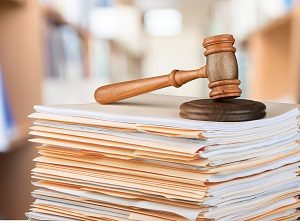There has been a great deal of controversy regarding how far the influence of an HOA can stretch to the members of its community. There have been many residents that have attempted to eliminate their association from requiring dues on the properties that they own. One issue that has gained a great deal of press recently is HOA foreclosures in South Carolina that affect property owners who fail to pay dues.
South Carolina has recently taken a legal stance on this issue and has passed legislation protecting residents on association foreclosures related to failing to pay their HOA dues. If your association is concerned about residents failing to pay dues based on the recent legislation in South Carolina, then it is important to review the information on HOA foreclosures in South Carolina below:
HOA Foreclosures in South Carolina | Is It Legal?
Foreclosures are a serious matter for every homeowner. No one wants a bank to get the house they’ve been paying for for years. Unfortunately, houses in HOA communities not only have to deal with banks or loan companies, but they also have to deal with the homeowners association. In South Carolina, if homeowners cannot pay dues, their houses are at risk of being foreclosed, but is this legal?
Do Residents Have to Pay HOA Dues?
This is a common question that is asked given that residents are reluctant to pay dues if they are unsure about the value of the benefits that they will be receiving from their HOA dues. The answer to this complex question is that it depends on the community that the individual is relocating to.
Residents need to read the governing documents carefully of any potential rental or long-term property investment that they are purchasing. If there are dues that are included in either the rental or purchase price, then the prospective tenant or resident needs to be fiscally prepared to pay those dues.
In some communities, the dues can be a high cost that can greatly impact other areas of the resident’s finances. Residents need to consider carefully what kind of rental overhead or mortgage cost they can afford and then add the dues on top of those costs to decide whether they are trying to rent or buy in the right community.
What Gives an HOA the Legal Authority to Foreclose on Residents That Fail to Pay HOA Dues?

Many residents are quite surprised to learn that in many states, HOAs have the right to foreclose on properties within their communities that do not pay dues for an extended period. What prospective residents have to be aware of is that some communities have a covenant that comes with their lands.
Having a covenant on the land means that the land that is purchased provides a right for associations to be automatically included as a financial obligation to residents. Associations that are included in a covenant is an obligation that attaches to the owner’s title when they purchase the land.
Due to this unique relationship, if an owner of a home within a community that has an HOA on the covenant of its land fails to pay dues, this could lead to the resident losing their home. Residents need to be aware of this potential threat to the home they may be considering purchasing if they foresee that they may not be able to make payments in the future.
What Is Included in South Carolina’s New Legislation?
 South Carolina has taken a unique legal stance on the authority of an HOA to foreclose on a resident for their failure to pay HOA dues. Even though there is a great deal of skepticism regarding this new legislation in South Carolina, it is important to realize that residents are tired of paying for HOAs that may be corrupt or not using their capital correctly.
South Carolina has taken a unique legal stance on the authority of an HOA to foreclose on a resident for their failure to pay HOA dues. Even though there is a great deal of skepticism regarding this new legislation in South Carolina, it is important to realize that residents are tired of paying for HOAs that may be corrupt or not using their capital correctly.
As a result, South Carolina is about to enact legislation that prohibits HOAs located within South Carolina on foreclosing on homes. There are many reasons behind this policy change; however, one reason is the duty of the state to protect the owner’s rights in property and from the mismanagement of funds that many HOAs have exercised in recent years.
Residents within South Carolina have been at odds with HOAs regarding their legal authority to foreclose solely based on failing to pay HOA dues. The new legislation will likely shed light on this grey area that has affected many residents within the State of South Carolina.
What HOAs Located in South Carolina Should Consider
Given that this new legislation could become widely accepted in the years to come, HOAs foreclosures in South Carolina may finally be controlled. HOAs located in South Carolina need to consider their strategy related to how they penalize residents who do not pay their dues on time and who also may not take their organizations seriously.
HOAs within South Carolina need to carefully decide how they are going to handle this new legislation and whether they will provide residents who have not paid their dues an opportunity to get current on their financial obligations to the HOA that is assigned to their community as the result of a covenant on the land where the association happens to have jurisdiction.
HOAs located in South Carolina need to consider their financial strategy and how they can fund their existing operations without causing too many residents to be at risk of foreclosure based on failing to pay dues caused by lack of transparency.
How Can HOAs Cope with This Prohibition of HOA Foreclosures in South Carolina?
Homeowners Associations need to carefully consider how South Carolina’s approach may impact its power in other states. Given that the main issue is related to residents not paying their HOA dues, associations have to carefully assess why residents are not inclined to pay their dues and how the association can make their services appear more valuable to residents across the board.
HOAs have to make an effort to promote transparency with their finances so that residents can see exactly where their HOA dues are going and how they are potentially helping the community. If residents are not able to see exactly where their HOA member dues are going, they will likely cause issues for the association in terms of lawsuits or raising awareness about the unethical practices of the association.
Even though South Carolina is one of the first states to make this shift, the new proposed legislation on HOA foreclosures in South Carolina is something that could quickly spread to associations located all over the United States. It is essential for HOAs in other regions to study the issues being decided in South Carolina and assess how their states should act to honor the new legislation, while simultaneously trying to eliminate the steady backlog of cases that are currently occurring in our office.
Associations need to find communities in neighboring states to see what kinds of issues their organizations are facing and whether those issues apply to the legislation outlining the rights of a homeowners association to foreclose upon residents for failing to pay for their community dues. This will give them more perspective on how to deal with delinquency as opposed to just relying on HOA foreclosures in South Carolina, which, for many homeowners, is unfair.






